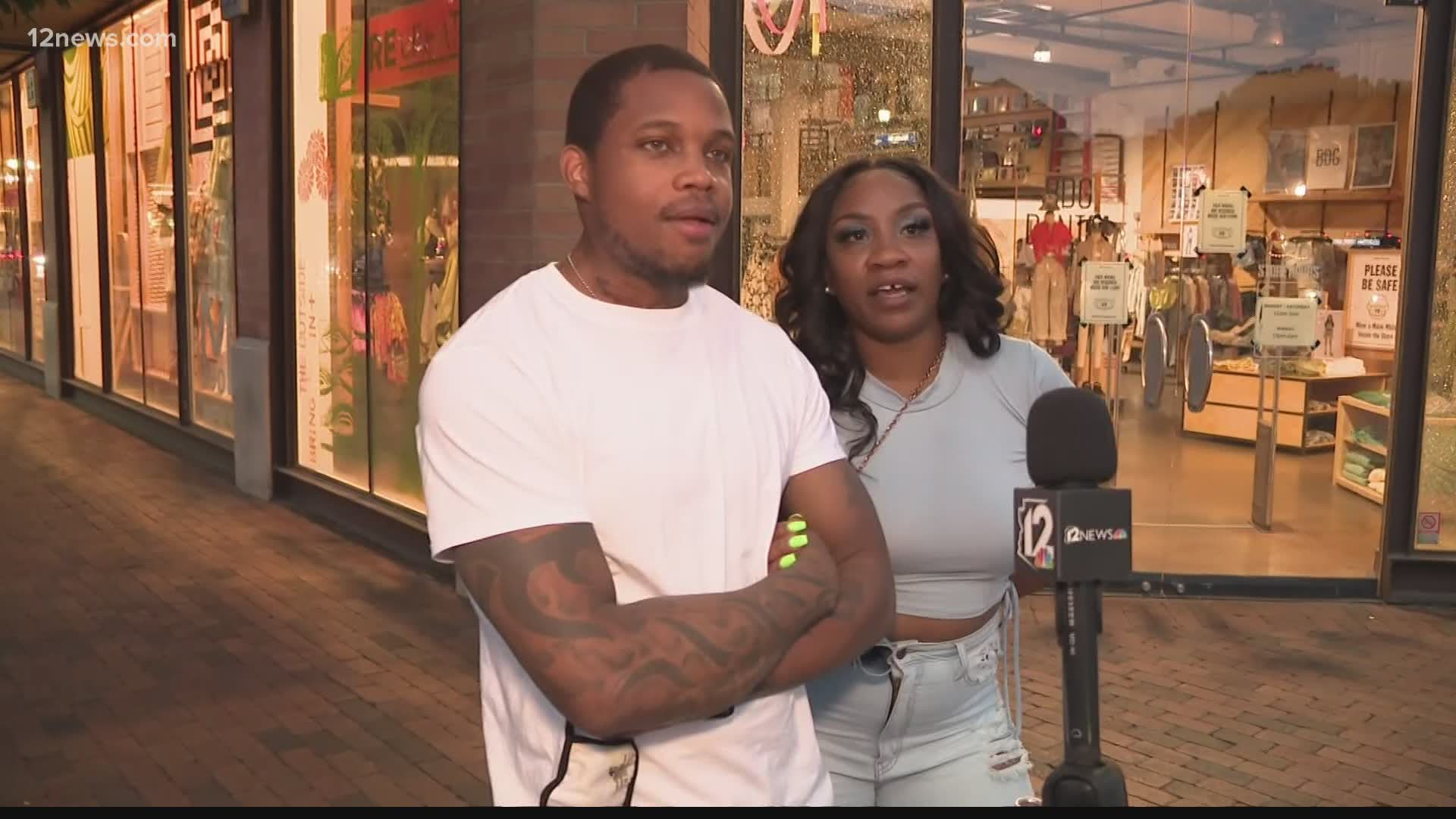PHOENIX — More than half of all Americans are fully vaccinated against COVID-19. But to reach herd immunity, some of those on the fence will need to be convinced.
12 News decided to go to two of the communities where statistics show the most hesitancy.
What used to be days of long lines and a rush for appointments have now turned into open appointment slots and a surplus in vaccines.
12 News made its first stop on Mill Avenue in Tempe, just feet away from Arizona State University.
Statistics show that younger people are lagging behind in vaccine rates. A recent survey found that 21% of Gen Z do not plan on getting the vaccine, while 30% are waiting a while.
We brought along Dr. Shad Marvasti the director of public health from the University of Arizona.
Dr. Shad took questions from those willing to go on camera.
“Already being a young guy, being at low risk to get COVID, especially die from it in the first place, why should I get the vaccine?” Grant Spicer asked.
“Unfortunately you don’t know until you get it if you are low risk. Because there are young folks with no health conditions who are totally healthy," Dr. Shad said.
Dr. Shad said that the new variants are hitting younger people harder, reversing the earlier trend from the original strain of COVID-19
“Are they completely done with the research, or is there more research to be done?” Noah Franklin asked.
“The tech has been researched at NIH and around the world over the last 20 years,” Dr. Shad said. “[There is] data from hundreds of millions of people around the world in all age groups that also show it to be highly effective”
The most common question we got from the unvaccinated 20 somethings was, Why get the shot now?
“You keep spreading it around, then a new variant forms,” Dr. Shad responded. “It mutates all the time.”
The concern for Dr. Shad is that every single time the virus mutates, it has a chance to become resistant.
“We get a variant that is resistant to all the vaccines and it moves back to square one.”
Despite the doctor answering questions, and a vaccine clinic open close by, none of the skeptics got the vaccine.
“My experience is the misinformation has really done the damage. It has really created a culture of people being really scared and hesitant," Dr. Shad said. “We have to get in grassroots, we have to knock on doors we have to go to community centers, we have to knock on doors,”
12 News knocked on doors the next day in Maryvale, where statistics have shown the lowest vaccination rate. This time with Dr. Ricardo Correa an endocrinologist with the University of Arizona College of Medicine.
"It tackles the problem in the culture and language of the population,” Dr. Correa said.
CDC data shows that the Latinx population lags behind when it comes to getting the vaccine. Correa said that much of the original information about the vaccine was in English but not Spanish.
“It allowed misinformation to spread,” Dr. Correa said.
During our time, 12 News ran into a mixture of people. Some believed conspiracy theories that have been debunked, others said they didn’t feel like they needed it. Some said that they were trying to get the rest of their family to get the shot.
“We need the people like you who are in the middle that are yes, no but more yes to go and get it,”
After talking to one man, he said he might get it and took information about a nearby clinic.
“We need to empower the community healthcare workers, the people they trust,” Dr. Correa said. “I think that we can -- there’s a lot of hope."
COVID-19 Vaccine
Subscribe to the 12 News YouTube channel to receive notifications on the latest videos about the coronavirus vaccine and the developments on the distribution in the United States.

